One of the World’s Hotspots: How a Young Climate Ambassador Fights Climate Change in the Western Balkans
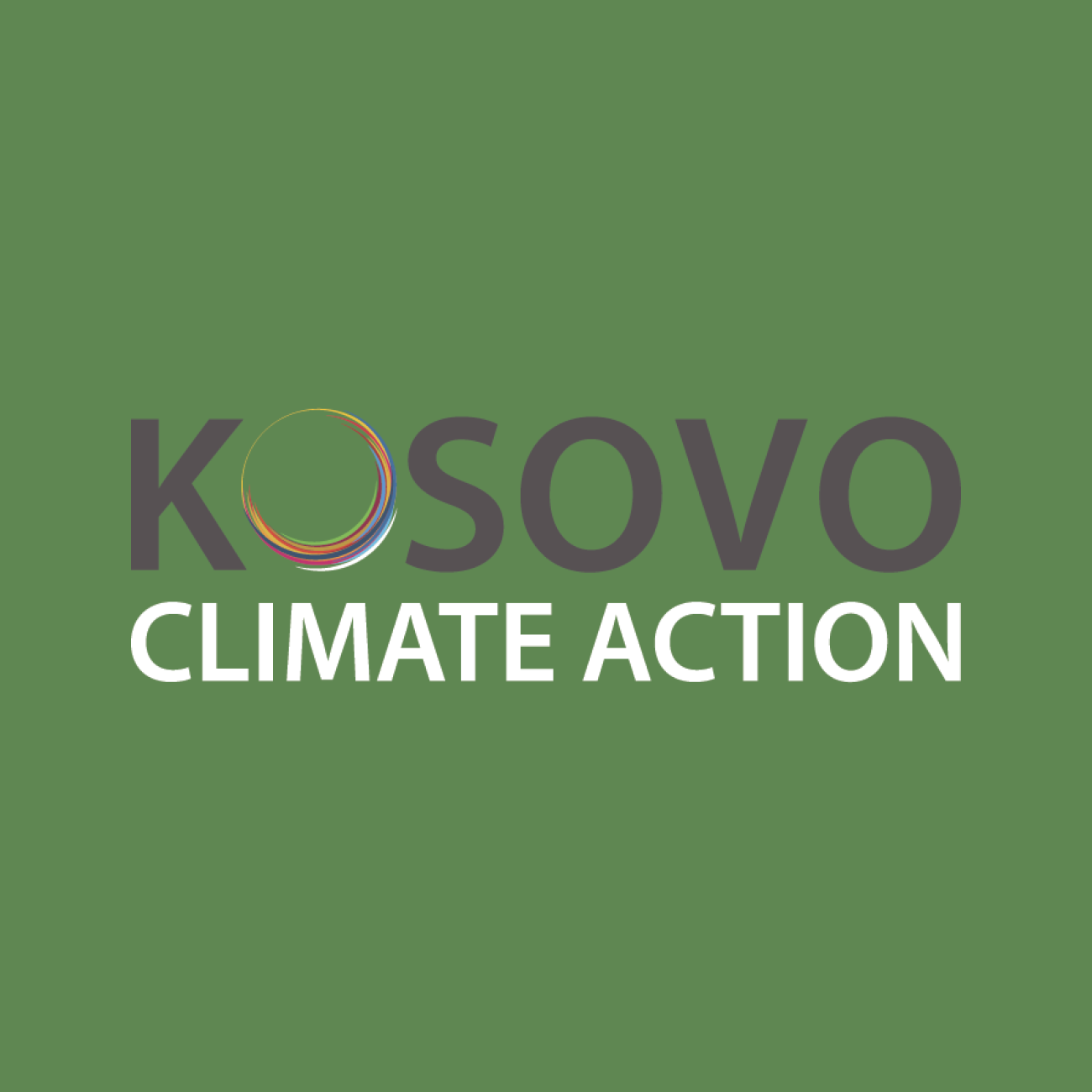
In this guest blog series that forms part of our Kosovo Climate Action campaign in October 2021, we invite experts and young people to share their views.
Read the blog in Albanian: LINK or in Serbian: LINK
Fjollë Caka, 31, a 2021 Climate Ambassador of the World Bank Group’s Global Youth Climate Network and an urban planner at UN-Habitat, aims to raise awareness about climate change in Kosovo. In this guest blog post she talks about why climate change matters to Kosovo and what she is doing to counter it. Fjollë holds a Masters in Architecture from the University of Pristina, a Masters in Sustainable Urban Planning from George Washington University in Washington, D.C. and is a Ph.D. candidate at South East European University in North Macedonia.

One cold November day, while I was lecturing on the seriousness of global warming to a class on Urban Planning at a private university in Kosovo, one of my students jokingly said, “What global warming? We are freezing here!” Other students laughed, and so did I, but I quickly bounced back, explaining how climate change is not associated with warmer days only. Climate change denotes a long-term change in the usual climate - depending on the context, this may bring both extremes, both hotter and colder weather. That student had not been my first climate change challenger. Not all people believe what they cannot directly see or in things they are not directly affected by.
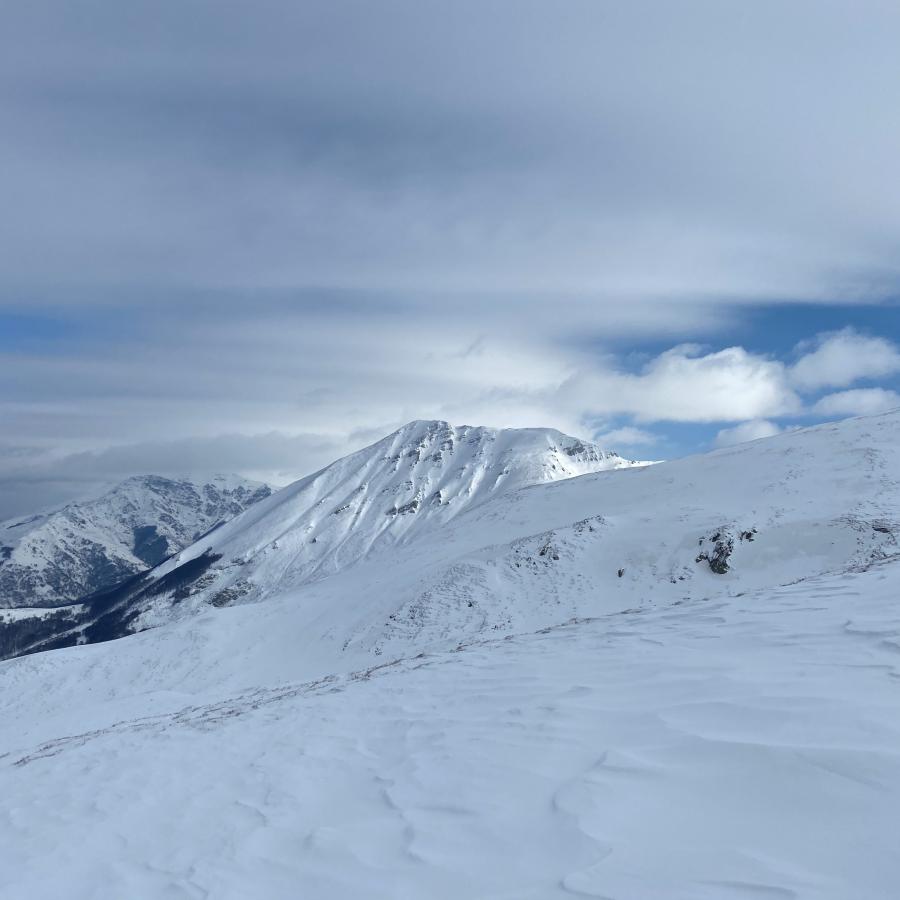
Caption: View from Vrtop, Sharr/Šar Mountain
Photo: © Uta Ibrahimi, (2019) |
Two years before that day, I had myself taken my first comprehensive course on the science of climate change while pursuing my master’s degree in the USA. Within the first two weeks, around one third of my classmates had stopped coming, and apparently, I was wrong in almost everything I said. Tough topic, tougher professor, but I decided not to drop the course. After all, how could I ever hope to be engaged in climate change management and policy without a proper understanding of what climate change really is, why it is happening and what it looks like? Would we be facing a world in flames or some future ice age? Long story short, the tough professor, Dr. Rachael Jonassen, became my lifetime mentor, who continues to guide me, both academically and professionally.
Dr. Jonassen also taught me how to distinguish truth from fiction, how to separate scientific evidence from baseless scaremongering or outright denial. Siding with 97% of the scientific community, it is clear to me that climate change IS happening, and that it has been mainly caused by human activities. However, according to a recent United Nations landmark report, climate change is not just happening - it is happening at a faster pace than previously thought. If we continue business as usual, we will be facing more and more severe impacts everywhere!
One of the Hotspots of Climate Change: The Western Balkans
Today’s global climate is different from that of hundreds and thousands of years ago. We experience warmer weather and more extreme events. There have been irreversible changes to the oceans, ice sheets and global sea levels! The Western Balkans is considered one of the world’s hotspots of climate change, which has been experiencing increased extreme weather and climate related events. Extreme droughts, floods and wildfires have caused high economic costs and show that people and institutions are not sufficiently prepared. Kosovo for example has been experiencing increasing temperatures and heat waves since the 1960s, heavy rains followed by floods since the 1980s, and forest fires since the 2000s. Droughts were recorded in 1993, 2000, 2007, 2009 and 2012.
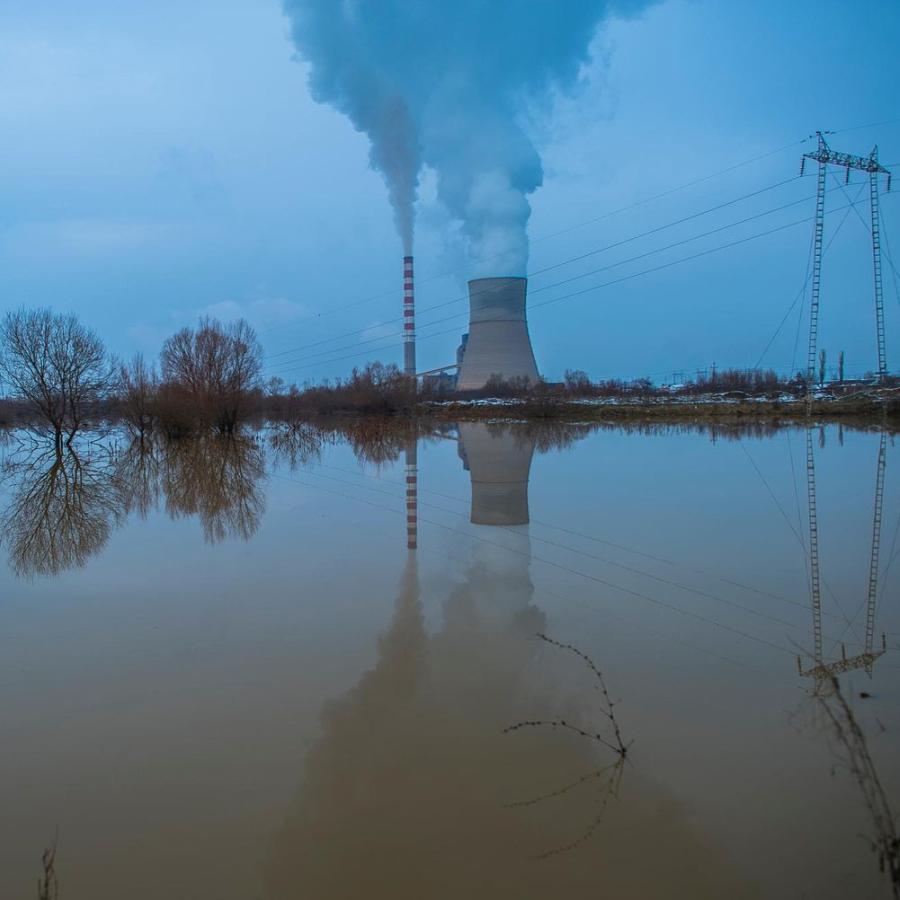
Caption: Floods in Obiliq/ć
Photo: © Arben Llapashtica, (2021)
|
One can recall the January 2021 floods caused by heavy rainfall and increased snow melt due to sudden temperature increases. Many riverside roads were inundated, bridges destroyed, water supplies cut (in Pristina, Drenas/Glogovac, Obiliq/Obilić). People had to be evacuated in Fushë Kosovë/Kosovo Polje, Gjilan/Gnjilane, Malishevë/Mališevo, and elsewhere. The recent July-August 2021 fires had about 473 active sources across the Pejë/Peć Prizren, Gjilan/Gnjilane, and Mitrovica regions! Such fires further deplete our forests - Kosovo’s most important resource in lowering carbon dioxide and thus in combating climate change. They reduce biodiversity, and impact livelihoods. Or let’s recall the drought of July 2017, which reduced agricultural production, specifically cereals (by 20-30%) and maize (by 60%). The estimated EUR 13 million in damages were far from being covered by the allocated EUR 500,000 fund for agricultural damage compensation, leaving many farmers destitute. Or the draining of our water resources, especially during the summer, which reminds those of us lucky enough to have additional water storage of why we still keep water reserves at home. Or the reduced number of snow days, sometimes even making us forget what it was like to get snow on New Year’s Eve.
|
Caption: Raspberry Farm
Photo: © UNDP (2019)
|
Some of us in Kosovo may see nothing wrong with these changed climatic conditions. Some may even say warmer weather benefits business – for example the young man who established Kosovo’s largest blueberry orchard. But changes in other countries’ climate can still cause disruption for us here in Kosovo, such as when a warm spring in 2018 led to an earlier harvesting season for blueberries across Europe – the primary export location for Kosovo blueberries – causing our young blueberry farmer to face plummeting prices, decreased profitability, and threats to his very operations and livelihood.
According to the latest IPCC assessment report on the physical science basis of climate change, the Western Balkans region is expected to face increased temperatures and changes in precipitation patterns, leading to extended periods of drought, increased soil erosion, forest fires and flood risk. Temperatures in mountain areas are expected to increase more than the world average, reducing snow cover days and increasing spring flooding. There is an increased risk of water shortages and competition between different water users (agriculture, industry, tourism, households), especially during the summer. Demand for energy will increase, for example to allow for air conditioning or cooling, followed by related emissions (which in 2019 already made up around 86% of the total greenhouse gas emissions in Kosovo) and atmospheric pollutants (already high across the region). Related climatic impacts will severely affect land ecosystems and species distribution, terrestrial carbon cycle, food production systems, agriculture, infrastructure and the overall health and well-being – causing significant habitat, human and economic losses.
There is still time to escape the Avalanche…
But while this “avalanche” is coming at us, there is still time to act and lower its impacts. The way we have been producing food (intensive chemical-based agriculture) and consuming it (intensive meat-based diets, exotic foods traveling long distances to come to our plates, food waste), producing energy, running factories, and travelling (on fossil fuels), building our homes and cities (losing open and green spaces, sprawling cities, not thinking of their life-cycle), washing ourselves, dishes, clothes or yards (wasting water or polluting rivers) or choosing our clothes (from polluting industries), has clearly changed the climate, making it the greatest risk for us all. So, if we have had it within us to alter the global climate to this point, we must surely be capable of exploring alternative ways to sustain Kosovo - and the Earth - and limit further destruction.
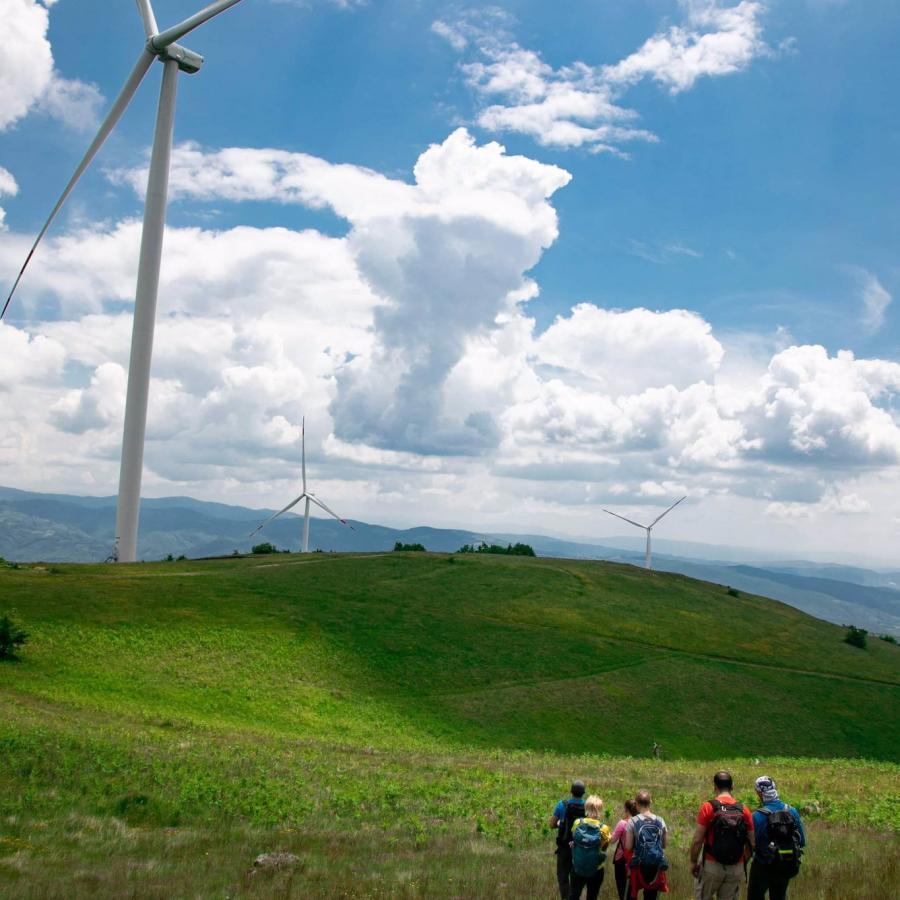
Caption: Wind Mill in Shalë e Bajgorës/ Šalje Bajgore
Photo: © Arben Llapashtica, (2019)
|
Worldwide advances in tackling climate change are leading to cleaner air and restored nature and at the same time have supported economic growth and new jobs. We should also use the momentum to recover from the COVID-19 pandemic and increase resilience to further shocks and stresses in a way that safeguards our environment for future generations, building back better and greener. Even though increased global climate action has been taken towards decarbonization, we are not even close to limiting global warming to 1.5 OC by 2030. We are currently at 1.1 OC warmer surface temperature than in pre-industrial times, and if we continue with the same emissions trend, we may reach 4.4 OC by 2100 – resulting in catastrophic impacts! Therefore, rapid greenhouse gas emissions reductions are needed to limit the warming effect, as well as air pollution.
At this year’s (26th) United Nations Climate Change Conference of the Parties (COP26), countries committed under the Paris Agreement will come together to accelerate their emissions reductions plans, encourage ecosystems restoration and resilience building, collaborate with others, and mobilize finance - especially supporting developing countries. The European Union has committed to reduce greenhouse gas emissions by 60% by 2030, and this cannot be achieved without increased climate action in the Western Balkans, including Kosovo as well.
Tackling Climate Change is not a Lone Wolf Thing
People may tend to avoid their anxiety by ignoring climate change, or may be slow to adapt to change, but we need to wake up and internalize the fact that the climate IS changing, and its impacts will directly affect us – and more importantly our children and grandchildren!
While each of us starts changing our own behavior or tries to impact those of our families and communities, we need to encourage increased climate action at our workplaces as well! On a personal level, this can mean small changes like taking shorter showers or turning the lights off when leaving a room. It can mean choosing local products in the supermarket or avoiding products with excessive packaging. It can mean growing more plants, or walking, biking or using public transport. Influencing our workplaces can be done whether you work for a government institution, civil society organization, academic institution or private company!
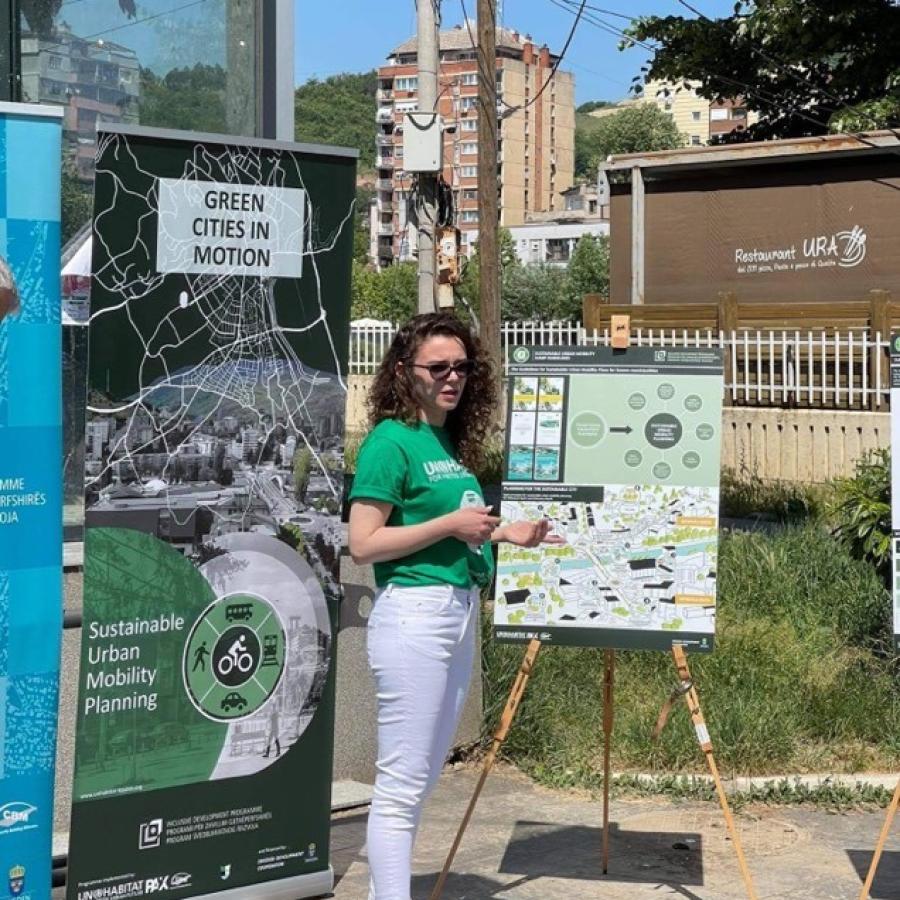
Caption: UN-Habitat Event
Photo: © Fjollë Caka (2021)
|
Personally, working as an urban/spatial planner at UN-Habitat Kosovo, I have tried to push forward more low-carbon and resilient spatial planning approaches towards a more sustainable and climate-savvy development in Kosovo – among them supporting the development and implementation of a Sustainable Urban Mobility Plan in Mitrovica South, drafting urban mobility guidelines for Kosovo’s cities, supporting Kosovo Earth Days campaign, and supporting the Kosovo Climate Action campaign. I have introduced my PhD research on assessing human and institutional capacities on climate change management within the planning and urbanism departments in Kosovo’s municipalities, and supported other activities towards institutional and civil society mobilization towards low-carbon development and climate resilience building.
But tackling climate change is not a lone wolf thing. My and your actions alone cannot stop it. Increased action is needed by ALL, supported by strong and visionary leadership, fact-based and well-informed planning, inclusionary processes, as well as technological innovation (luckily, we have so many bright minds). Surely, we can reduce climate change impacts on our communities and limit further warming! So, hop on, roll up your sleeves, and join us in saving Earth!
The views expressed in this post are those of the author and do not necessarily represent the views of the United Nations.
---------------------------------------------------------------------------------------
What are you doing to combat climate change? Tweet about it by tagging #KosovoClimateAction. Or ask your employer to join the Voluntary Commitments
English: https://www.surveymonkey.com/r/GMKTKJ6










